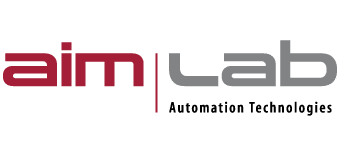“Execution was critical, and Aim Lab delivered”: Aim Lab and Vaxxas working together to champion Australian innovation.
The emergence of COVID-19 has drawn into focus the challenges associated with administering vaccinations via traditional methods – equitable access to vaccines globally as well as availability of qualified health workers to name just a few.
A significant innovator in this vital area of healthcare is Brisbane-based biotechnology company Vaxxas, who are focused on enhancing the performance of vaccines and increasing access to vaccination with their proprietary high-density microarray patch (HD-MAP).
MAPs are small, novel patches encompassing thousands of micro-projections that can be coated with a vaccine. The polymer MAP sits in a small applicator device made from aluminium, plastic, and stainless steel.
The initial process used by Vaxxas to assemble its HD-MAP applicators was mostly manual with little automation allowing the company to manufacture enough product for early-phase clinical studies. However, to progress to quantities required for later-phase clinical trials, and ultimately commercial products, Vaxxas needed to upgrade its assembly process to scale its manufacturing capabilities and meet compliance requirements.
Vaxxas approached Aim Lab to develop a more streamlined and automated approach.
As a novel technology, there was no existing equipment available to automate the assembly process for the HD-MAP. The solution needed to be custom designed and built from the ground up. This required a deep understanding of the processes involved in assembling the combination product and a list of detailed requirements.
The machinery also needed to operate in a sterile environment to meet the highest aseptic standards and Good Manufacturing Practices (GMP) requirements to guarantee the sterility of the final product, which delivers a vaccine into the skin.
“There are limited suppliers specialising in this space, and very few in Australia,” Charles Ross, Head of Clinical Operations and Supplies for Vaxxas explained.
“Aim Lab’s impressive track record and their local presence made the choice an easy decision.”
The project timeline of four months was tight. An unstable supply chain environment in the medical manufacturing sector also posed problems. Despite these headwinds, the Aim Lab team stepped up to meet the challenges.
“Designing for a cleanroom environment and ensuring top-down airflow restrictions were minimised as one challenge,” Damien Braun, R&D Manager from Aim Lab said.
“There were high accuracy requirements that had to be met. Our approach was to use existing electronics and hardware such as bearings and valves to mitigate supply chain issues. Every aspect of the solution was designed in-house, including industrial design, mechanisms, software and electrical.
“Timing was also a big challenge on this project, so we’re very proud that our team was able to collaborate with Vaxxas to achieve a solution that meets its needs in the timeframe required, and helps to take them to the next level.”
A clever and custom-made solution
Aim Lab’s final design and execution comprised of a semi-automated solution that was based on the existing manual assembly process. The focus was on automating the assembly motion and timing to achieve improved throughput, reliability, and repeatability. The solution uses a digital camera and display to improve the quality control and inspection stages, removing the need for the operator to touch the HD-MAP or the automation equipment.
The systems have been designed to be easy to use with very little training, and operable whilst wearing gloves. All parts can be replaced without tools, and along with the use of magnetic couplings that can be sterilised, making the equipment easy to clean and maintain.
“This new technology has enabled us to automate time-critical and force-critical process steps that were challenging for an operator to deliver consistently. By simplifying these steps, the equipment has reduced the physical and mental demands of the role and will allow us to scale-up our manufacturing capabilities,” Mr Ross said.
Local partners with a global outlook
Collaborating with fellow Australian company Aim Lab has allowed Vaxxas to leverage co-investment from the Advanced Manufacturing Growth Centre (AMGC) an organisation which assists Australian manufacturing businesses to scale.
Working with a domestic supplier also removed the potential risks of supply chain delays, for example with international shipping. Aim Lab was able to design and deliver the high-quality, specialised equipment in just four months.
With Aim Lab’s proximity to Vaxxas’ Australian operations, the Aim Lab team quickly gained a detailed understanding of the Vaxxas processes and requirements. There was close collaboration between the Aim Lab and Vaxxas teams during the specification, design, testing and training stages, and this resulted in a quality service that exceeded Vaxxas’ expectations.
“Vaxxas is part of a highly regulated industry with very specific equipment qualification procedures. Aim Lab has met the often complex and specific requirements of this environment from the early design phase right through to machine qualification, which has been another contributing factor in the project’s success,” said Mr Ross said.
“This new technology has enabled us to automate time-critical and force-critical process steps that were challenging for an operator to deliver consistently. By simplifying these steps, the equipment has reduced the physical and mental demands of the role and will allow us to scale-up our manufacturing capabilities,” Charles Ross, Head of Clinical Operations and Supplies for Vaxxas.


